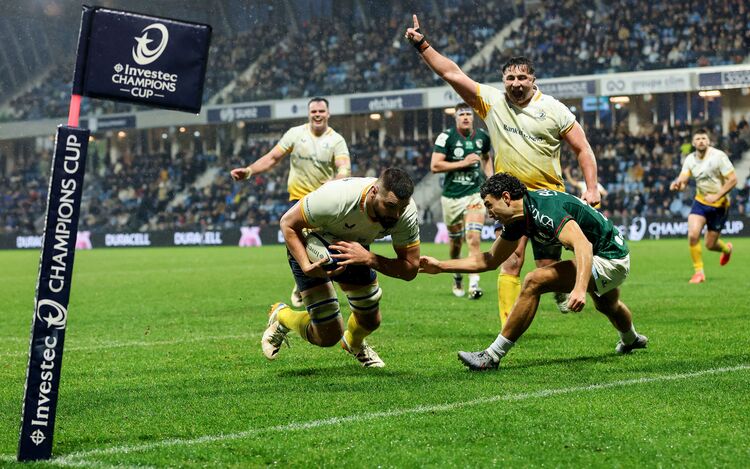They stared down at us from the walls of musty parlors. Seven somber men, faces cased with conviction: the signatories of the 1916 Proclamation. There was no escaping them as they glared off into a tomorrow forever anchored to the past. Few denigrated them for they were a breed apart, martyrs
My father, a caustic merchant marine, said they were nuts. But he was a rarity.
Three of them were of importance to me: Seán MacDermott, James Connolly and Pádraig Pearse.
You could still hear echoes of Connolly down the laneways of Wexford for he had led a great strike in 1912 that still polarized the town. I'd always wondered at his sudden conversion to Republicanism since he had often been scathing of "advanced" nationalism.
And then I stumbled upon a clue! On January 19th, 1916, Connolly had been "detained" by the Irish Republican Brotherhood. When released after three days he said, "I've been through hell." Nonetheless, the following Easter, he and his Irish Citizen Army joined the IRB in the uprising.
No account has ever been given about the interrogation, probably because all the participants were executed by British firing squad, but Sean MacDermott was a part of it.
The hard man of the IRB, ailing and partially crippled with polio, MacDermott was going to get his revolution come hell or high water. Charismatic, secretive and ruthless, you can trace his DNA down through Michael Collins to the revolutionaries of the recent "troubles."
The enigmatic Pearse was involved too. A poet, barrister, educator, mother's boy, he was shy and a trifle vain but possessed a will of iron. This first president of the Republic was a saint-like figure in Ireland until the mid-1960s when he became a butt of jokes to a generation eager to discard the past and embrace the modern world.
What a dream trio for a playwright! Lock them in a room with the clock ticking. Connolly was plotting his own insurrection, thereby threatening the IRB's planned uprising on Easter Sunday. Who would blink first?
I wrote "Blood" almost twenty years ago; it received a number of good outings and I moved on to something else.
Some months back, when another New York production was proposed, I reopened the play. So many things had changed: peace had come "dropping slow" to the North. Playwrights are hardly impervious to the whirligig of time either.
When I finished a new draft, to my surprise, the play had become as much about MacDermott as Connolly. Stripped of the calcified sanctimoniousness, I was also finally able to see Pearse for what he was: a compelling, driven but ultimately strange man.
And how did these three icons look in the cool digital light of the 21st Century?
Very human, but blazing with a craggy idealism almost too powerful for these pragmatic times. Each had a goal and was willing to pay the ultimate price. Almost stranger, none of them seemed to have the least interest in materialism, or financial wellbeing.
Why did they rise up in what now seems like a suicidal enterprise? Well, Connolly after two huge defeats in the Wexford and Dublin lockouts was determined that the Irish working class should not endure another generation of crushing poverty.
MacDermott, his own clock ticking, considered the Easter Rising his last chance to make a stand against the inexorable Anglicization of Ireland.
And the genteel Pearse? His brand of Gaelic nationalism mystified even some of his IRB comrades, but like them all it cut him to the core that 100,000 Irishmen were spilling their blood for the British Empire in a catastrophic, meaningless, European war.
During rehearsal I looked around at the cast and technical crew, all deeply affected by these three intense characters from a different time.
Ah yes, the theatre, one of the last bastions of idealism, where faith and hope daily confront reality with little chance of gain, just as three very different men set out to change Ireland ninety-six years ago - and did.
* "Blood" by Larry Kirwan and "Dancing At Lunacy" by Seamus Scanlon will run through March at The Cell Theatre, 338 W. 23rd St. in Manhattan. Details at www.thecelltheatre.org.








